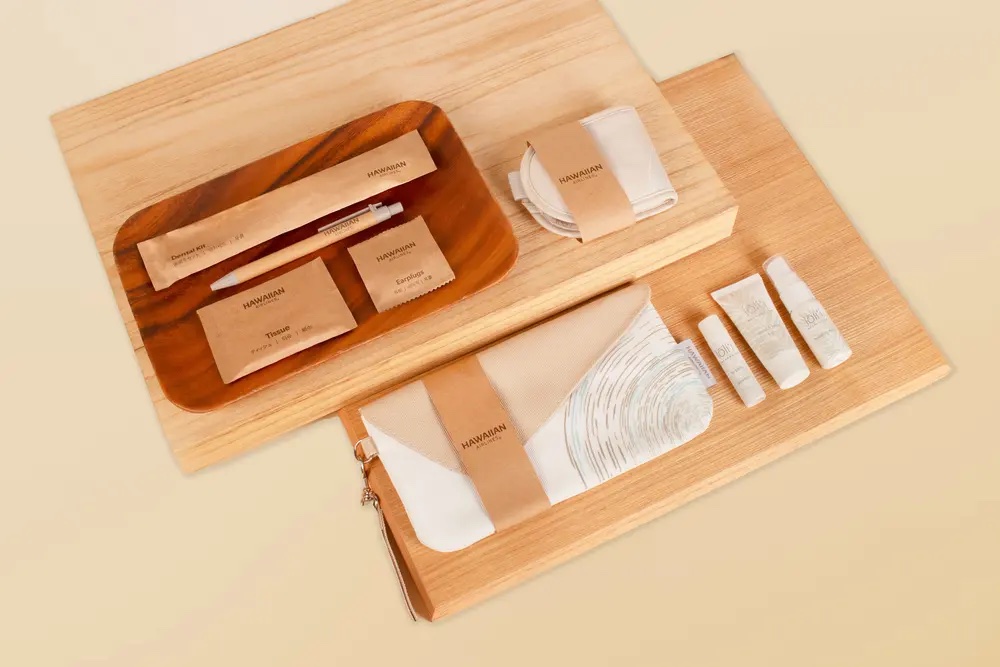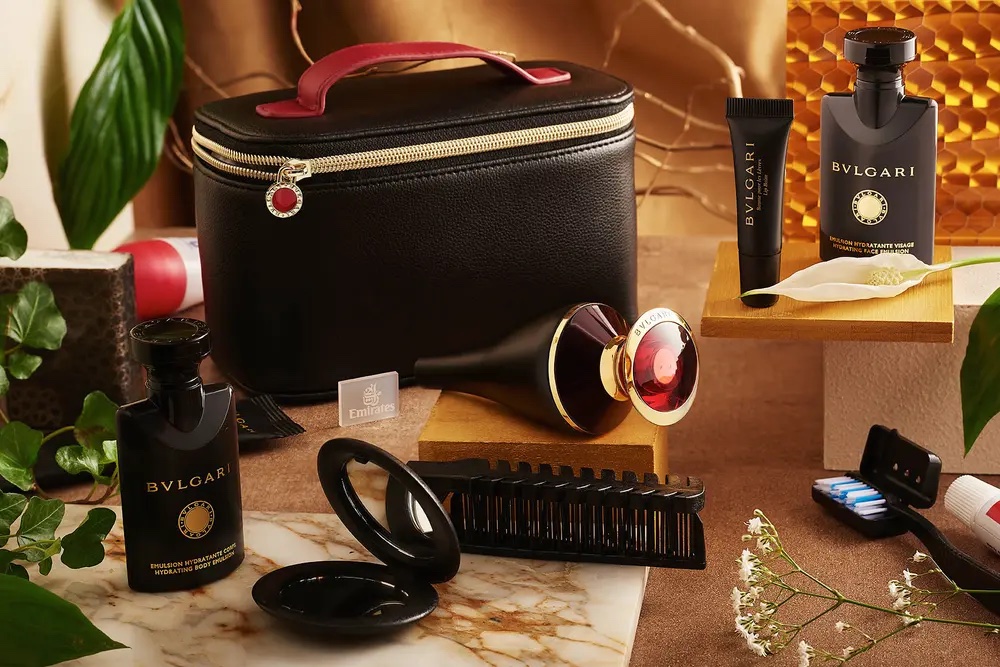FORMIA puts emphasis on sustainable amenity kits
Share
Leading airline amenity kit supplier FORMIA outlined its ambitious sustainability roadmap during IFSA APEX EXPO. It highlighted its industry-first certified carbon-neutral programme with Hawaiian Airlines while setting aggressive targets for sustainable material usage across its portfolio.
Speaking to APEX Media at the company’s exhibition stand, Chief Marketing Officer Marisa Pitsch and Senior Sustainability Manager Freddie Rollason detailed how the company balances premium passenger experience with environmental responsibility.

The Hawaiian Airlines programme represents a significant milestone, achieving certified carbon neutrality through a combination of recycled materials and carbon offsetting. “Over 80 per cent of materials used are recycled, with only components like zippers and elastic straps remaining virgin materials,” explained Rollason. The programme’s carbon footprint of approximately 1,000 tonnes per year is offset through verified schemes, with methodology validated by third-party auditor SGS.
However, Rollason emphasised that carbon offsetting alone isn’t sufficient. “If we could buy our way out of climate change as a society, we would have done,” he noted. The company has implemented a carbon management and reduction plan, focusing on manufacturing facilities with on-site solar generation and exploring ways to reduce kit weights to minimize aviation fuel impact.
Formia has set ambitious targets for sustainable material usage across its portfolio, aiming for 40% sustainable materials by 2024 and 50% by 2025. The company reports being on track or slightly ahead of these targets. Since 2021, it has been transitioning its amenity kit components away from virgin plastics towards sustainable alternatives, including recycled polyester, bamboo, and certified organic or recycled cotton.
The premium passenger experience remains paramount, with Formia maintaining its reputation for luxury partnerships and collectable designs. The company’s 30-strong in-house design team focuses on creating kits with genuine post-flight utility. “One of our core pillars is conscious design… designing really thinking about functionality aspects,” said Pitsch.
This approach has proven successful, with some vintage kits commanding significant resale values. Pitsch revealed that the company even monitors eBay prices as a benchmark for desirability, noting that some historic first-class kits fetch up to US$250 on the secondary market.
The growing premium economy segment represents a significant opportunity, with airlines increasingly investing in improved amenity offerings for this cabin class. Formia highlighted new programmes with carriers, including Delta Air Lines and Turkish Airlines, the latter featuring rotating designs that showcase Istanbul’s Modern Art Museum works.
While experimental sustainable materials like apple leather show promise, cost remains a barrier to widespread adoption. However, Formia’s strategy of “raising the floor” by making recycled materials standard could help pave the way for more innovative materials as scales increase and costs decrease.
The company has expanded its sustainability team, now employing two and a half full-time equivalent positions between Hong Kong and other locations. This investment supports material innovation and programme implementation, including crew training to communicate sustainability stories to passengers effectively.
Looking ahead, Pitsch identified three key trends driving the sector: sustainability, premiumisation, and personalisation. “The hot topic is sustainability and how we can… not just incorporate sustainability into the kits, but also balance that with a premium experience,” she explained.

The challenge now lies in scaling sustainable solutions while maintaining the luxury positioning that has made Formia a leader in airline amenity kits. With long-standing partnerships like Emirates-Bvlgari entering their 17th year and new sustainable initiatives gaining traction, the company appears well-positioned to navigate the industry’s evolving demands for both luxury and environmental responsibility.


